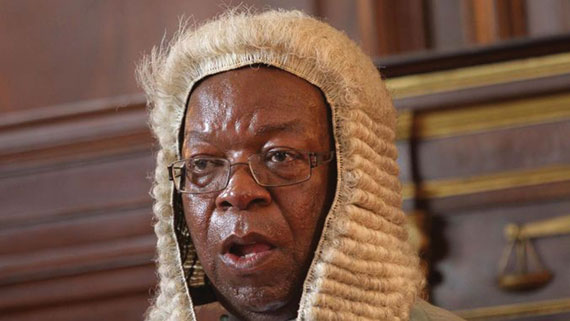
THE Constitutional Court (Concourt) yesterday postponed indefinitely an application filed by Lobengula MP Samuel Sipepa Nkomo, to compel the government to immediately implement devolution of power as provided for in the new Constitution, after two Cabinet ministers cited in the matter failed to file opposing affidavits.
CHARLES LAITON Senior Court REPORTER
Chief Justice Godfrey Chidyausiku ordered the postponement after he noted that the respondents in the matter, Local Government minister Ignatius Chombo and Justice minister Vice-President Emmerson Mnangagwa, had not filed their opposing affidavits.
The Chief Justice noted that the respondents had not been granted condonation to file their opposing affidavits, but since the application was not opposed, the court granted them leave to do so and asked Nkomo to file his answering affidavit if he so wished.
Chombo is cited as the first respondent as he is responsible for the administration of the Provincial Councils and Administration Act, while Mnangagwa is the second respondent, as he was dealing with the Constitution, Bills and other legal matters on behalf of the government, which is the third respondent.

Through his lawyers Tendai Biti Law, Nkomo argued that failure by the respondents to operationalise Chapter 14 of the new Constitution, in so far as it deals with local governance, was a violation of his right to equal protection and benefits of the law.
“Indeed as a result, the respondents have failed to operationalise the key constitutional question of devolution in this country,” Nkomo said in his founding affidavit.
“Chapter 14, in so far as it deals with the provincial tier of government, has thus remained moribund or non-operational.
- Chamisa under fire over US$120K donation
- Mavhunga puts DeMbare into Chibuku quarterfinals
- Pension funds bet on Cabora Bassa oilfields
- Councils defy govt fire tender directive
Keep Reading
“Section 2 of the Constitution states that the Constitution is the supreme law of the land and the obligations imposed by it are ‘binding on every person, natural or juristic, including the state and all executive, legislative and judicial institutions and agencies of the government at every level, and must be fulfilled by them’.”
He argues that the delay to operationalise devolution was, therefore, a breach of the law and says he had approached the Concourt because it was the watchdog of constitutional compliance.










